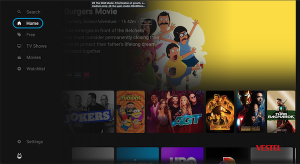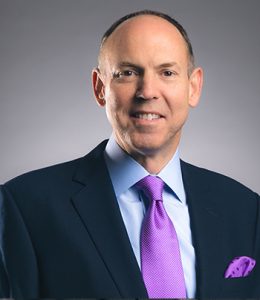
After more than 40 years of operation, DTVE is closing its doors and our website will no longer be updated daily. Thank you for all of your support.
Xperi launches TiVo smart TV OS, names Vestel as first customer
Xperi has announced the launch of its smart TV operating system.
TiVo OS is described by Xperi as a ‘first-of-its-kind neutral platform’ that is aimed at giving OEMs more control over the user experience while aggregating content from VOD and linear services. It achieves this via a universal discovery system which Xperi said makes TiVo OS the “ultimate independent smart TV system”.
Jon Kirchner, CEO, Xperi, said: “We estimate that nearly 40% of the smart TV market is searching for a truly independent platform like ours, and a supportive industry partner with deep domain expertise.
“Today, nearly 30 million households worldwide are powered by TiVo through an array of CTV and other partners. We are pleased to have signed our first smart TV partnership for TiVo OS, our embedded operating system and media platform for smart TVs, underlying progress toward our goal of becoming a leading independent TV OS platform supplier.”
Three growth areas
Kirchner told DTVE that the connected TV and smart TV space was one of three key growth areas in video that the company is targeting, alongside IPTV, particularly in the North American market, and the emerging market for connected car entertainment.
In the smart TV space, Kirchner said that Xperi was targeting TV manufacturers that did not have the scale and resources to develop their own proprietary platform, like Samsung or LG, but which nevertheless would like to offer an enhanced and regularly updated range of services.
“I think we’re in a unique position to personalise the content discovery experience in the TV,” said Kirchner.
“That means streamng and live TV personalised to the user rather than continuously trying to shift users onto proprietary programming that some of the other platform operators have curated in their own interests, not necessarily in the interests of users. We beleive our independent offering will represent something new and innovative with a different level of personalised experience that is unbiased.”
Kirchner’s comments were amplified by Geir Skaaden, chief products and services officer at Xperi.
“There is a set of TV manufacturers outside of the few that have the resources to build their own platforms that are looking for solutions not only to control the brand experience but to provide a strong end product consumers that drives a better overall user experience,” said Skaaden.
Xperi’s launch of the smart TV OS follows the company’s acqusition of Vewd, which Skaaden said had developed the technology to “allow OEMs to have a unified expeirience layer”
Vestel to deploy
The first manufacturer to deploy the OS will be Vestel, one of the top three European TV makers. Its Powered by TiVo Smart TVs are expected to ship in 2023 as part of a multi-year, multi-country, multi-million-unit agreement.
Turan Erdoğan, CEO, Vestel, said: “Vestel, aligned with is mission of being the ‘retailer of retailers,’ offers a wide range of choices to its customers in terms of Smart TV OS platforms. TiVo, and its parent company Xperi, have a long history of both championing great customer experiences and creating entertainment ecosystems. We believe that the industry will benefit from a partner-oriented, independent media platform that provides the necessary scale, both in technology and content to satisfy the global media landscape.
“TiVo has a proven track record in making it easy for consumers to find, watch and enjoy the content they love. We’re excited about partnering with TiVo to provide a European-focused Vestel Smart TV Powered by TiVo OS to provide consumers the experience they want.”
The news came just after Xperi’s board approved the separation of its business down the lines of IP and product. Jon Kirchner will remain Xperi CEO, overseeing brands such as DTS, TiVo and IMAX Enhanced, while company veteran Paul E. Davis will be charged with leading the Adeia IP business.
Kirchner said that the split would offer greater clarity about Xperi’s range of solutions in the market.
“The separation allows the marketplace to be clear that they are buying solutions and partnering with an experienced provider of productions and services that will make them successful,” he said.
Kirchner said that the products business accounted for “slightly more than half” of revenues of the combined businesses.




